President Cyril Ramaphosa sure knows how to pick ’em. Police ministers in particular.
First there was Bheki Cele. What a great idea to hire as executive head of the police the man who was fired as police commissioner after a dodgy lease deal. Who was fired by Jacob Zuma, no less – a man whose own moral compass has all the direction of a bleary sheep.
The former police minister and influential ANC national executive committee member made headlines in News24 this week for being put up in the swish penthouse of a Pretoria hotel by tenderpreneur and attempted-murder-accused Vusimusi “Cat” Matlala. Twice.
Matlala, of course, is perhaps better known – largely due to the publication’s dogged reporting – as the recipient of a R360m police tender, awarded while he was under investigation for alleged corruption at Tembisa Hospital.
Cele would have us believe Matlala is the most fleeting of acquaintances. “I spend a lot of time in Pretoria, and I stay in a lot of places … so, yes, I stayed at that place [the penthouse],” he said. “I know him, but friends, no. I only met him this year.”
With acquaintances like these, who needs friends anyway?
In any event, it so happens that Cele was minister when the tender Matlala won was adjudicated; it was awarded a week after Cele left office, News24 reports.
Which brings us to Ramaphosa’s newest police minister, Senzo Mchunu, a man thrown into the spotlight too this week, along with Matlala, when KwaZulu-Natal police commissioner Nhlanhla Mkhwanazi tossed a couple of grenades his way.
At issue is political interference in the police – in particular the disbandment of the political killings task team, ostensibly to protect certain interests, after it began investigating a crime syndicate with links to a drug cartel in Gauteng.
That’s in addition to allegations of collusion between the minister, Matlala and an apparent fixer, Brown Mogotsi – and of a web of corruption that threads through just about every South African institution, from law enforcement to parliament, prosecutors and members of the judiciary (though Mkhwanazi failed to provide comprehensive evidence of the latter).
Something rotten in the state
In Mkhwanazi’s telling, parsed down, it goes something like this:
Last year, 10 members of his political killings task team were brought to Gauteng, at the request of the provincial organised crime unit, to dismantle a regional crime syndicate. At the same time, the seconded members ended up investigating Matlala for a botched hit on his former lover, Tebogo Thobejane.
Then in late December, Mchunu pulled the plug on that task team – because of its investigation into the syndicate, Mkhwanazi alleges. Deputy national commissioner of crime detection Shadrack Sibiya subsequently pulled 121 dockets from the unit – dockets that Mkhwanazi says have been gathering dust on Sibiya’s desk ever since.
Then, in May, Matlala was arrested for the attempted murder of Thobejane. That gave the cops access to his cellphone.
On the face of it, the messages on those devices look pretty damning. WhatsApps suggest Mogotsi – positioned as a fixer between the tenderpreneur and the police minister – was being fed information from the upper echelons of the police. At worst, they suggest he had substantial sway over Mchunu.
Mogotsi was not unknown to Mkhwanazi; the fixer had previously sent him classified documents that a civilian should not have had sight of, Mkhwanazi said.
Matlala’s phone would suggest Mogotsi was known to Mchunu too: there are screen grabs of messages purportedly between the two. And while Mchunu previously denied knowing Mogotsi, he has since changed his tune, saying he’s “just a comrade”.
Here’s one message, sent by Mogotsi to Matlala on January 1: “I have arranged a meeting for Sibiya and the minister. They must have a solution.”
And another, which looks pretty bad indeed: “The task team that came to your house and harassed you have been dissolved. They got the letter on Monday. As we speak, they are bringing all the dockets to Sibiya.”
In another, he sends Matlala the letter in which Mchunu disbands the task team.
But there’s more: Mkhwanazi also claims that Matlala funded the “political endeavours” of Mogotsi and Mchunu, pointing to a proof of payment to a company News24 has linked to Mogotsi. The R110,000 was apparently payment for guests for “January 8 travelling costs” (the ANC hosts its birthday event around January 8 each year) and attending a gala dinner in Cape Town, where this year’s ANC celebrations were held.
In his high-octane press conference last Sunday, Mkhwanazi spoke too of warning messages to Mogotsi after Matlala’s juicy police contract was spiked; WhatsApps from Mogotsi to Mchunu seemingly about now arrested spook Dumisane Khumalo; and classified crime intelligence documents being handed to an MP.
Mchunu and Sibiya have denied all of Mkhwanazi’s allegations, with Mchunu furiously rejecting claims he’s ever met Matlala. Matlala remains in jail. And Mogotsi is MIA.
A political problem
This should be of deep concern for the ANC. Two of its senior members consorting with an apparent member of the underworld is the sort of behaviour for which the party was punished at the 2024 polls. Which is why it has called Mchunu and Cele to appear before its (so far toothless) integrity committee.
We bet they’re just quaking in their boots.
But the claims against Mchunu should worry Ramaphosa for other reasons too.
Mkhwanazi isn’t some low-level hack; he’s a lieutenant-general in the police and known to be a straight shooter. That alone should give his allegations some heft. And the evidence he produced, while not conclusive, is certainly suggestive – and thus worthy of criminal investigation.
This also comes at a time when public trust in the police and criminal justice system is parlous. An Afrobarometer survey last year is telling: only 11% of respondents believe government is handling crime “well” or “fairly well”; just 32% trust the police, while 43% don’t trust the police “at all”; and 60% believe “most” or “all” police are corrupt.
Mkhwanazi’s allegations will do nothing to dispel this perception. The only thing that will go some way to mitigate it is a full criminal investigation into the matter, where a docket is opened, and handed to the National Prosecuting Authority if worthy of prosecution, and where court processes proceed from there.
In the meantime, Mchunu needs to either step back from his position or be removed from it. He cannot remain as executive overseeing a police force that is investigating him – particularly in light of the claims of political interference.
Of course, there is nothing stopping a criminal investigation running in parallel with a political inquiry. Already, National Assembly speaker Thoko Didiza has called on three (!) parliamentary committees to look into Mkhwanazi’s allegations (even though a single judicial inquiry may be the better – and more efficient – option).
But it is Ramaphosa who really needs to stand up and take leadership here.
His first step should be to remove Mchunu from his portfolio. Sadly, the president doesn’t have a particularly heartening track record here. Witness former justice minister Thembi Simelane, accused of taking out a loan through a VBS fixer while mayor of Polokwane. She was simply moved sideways into the human settlements portfolio.
Or minister in the presidency Khumbudzo Ntshavheni, accused of a dodgy R2.5m tender – and who oversaw R80m in unauthorised expenditure – while municipal manager of Ba-Phalaborwa. On this, we’ve heard nary a whisper from our good president.
Or when higher education minister Nobuhle Nkabane was accused of lying to parliament about the appointment of politically connected Seta board chairs, Ramaphosa did little more than apparently tell her not to open her mouth again.
All of which underscores the fact that the president is not one to be jogged out of his torpor. But the fact that he interrupted his hobnobbing with his Brics buddies in Rio to concern himself with this domestic matter could be seismic. Could be.
After “applying his mind” to this crucial matter over the course of a week, Ramaphosa will finally address the nation on Sunday. Hopefully, in a departure from the norm, he’ll actually do something.
Top image: KwaZulu-Natal police commissioner Nhlanhla Mkhwanazi. Picture: Gallo Images/Darren Stewart.
Sign up to Currency’s weekly newsletters to receive your own bulletin of weekday news and weekend treats. Register here.


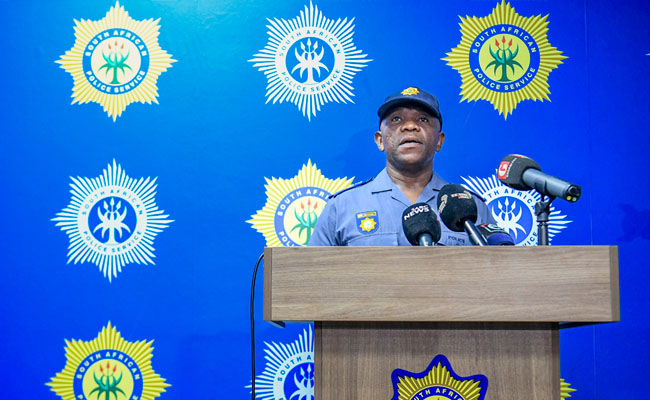

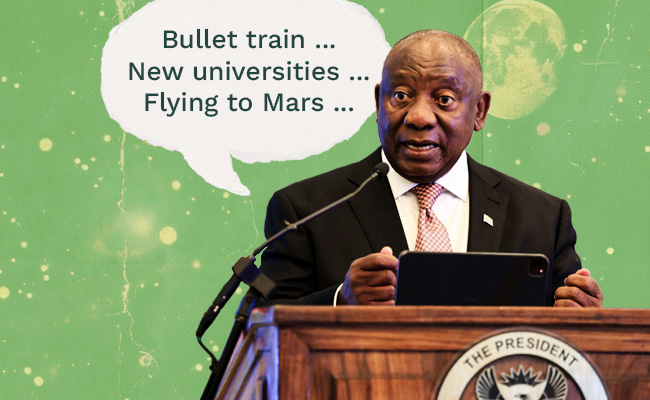
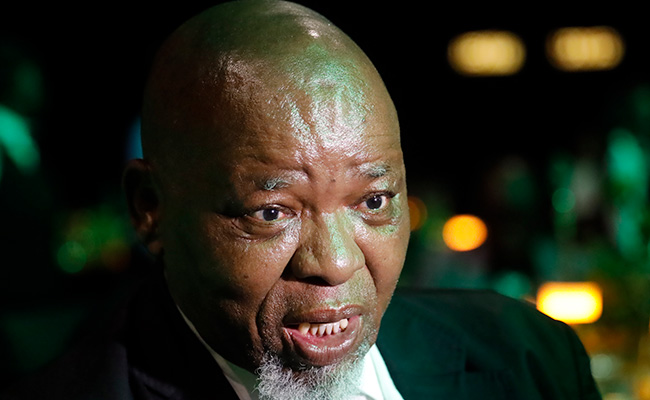
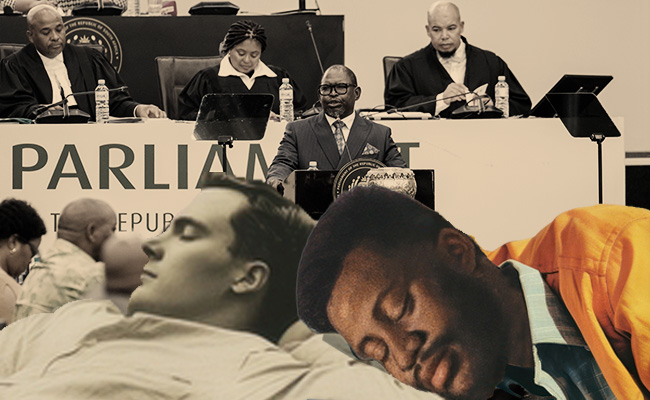
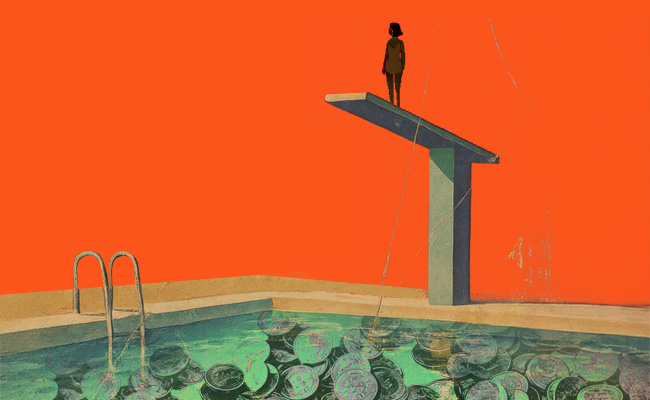






Haha – good luck with that one! Chances of El-Presidento doing anything meaningful to arrest the rot in his party are slim.
His mantra is (as always) party first, country second.
I believe very few south africans trust Cyril will do what is honorable and correct – spineless is a complimentary description